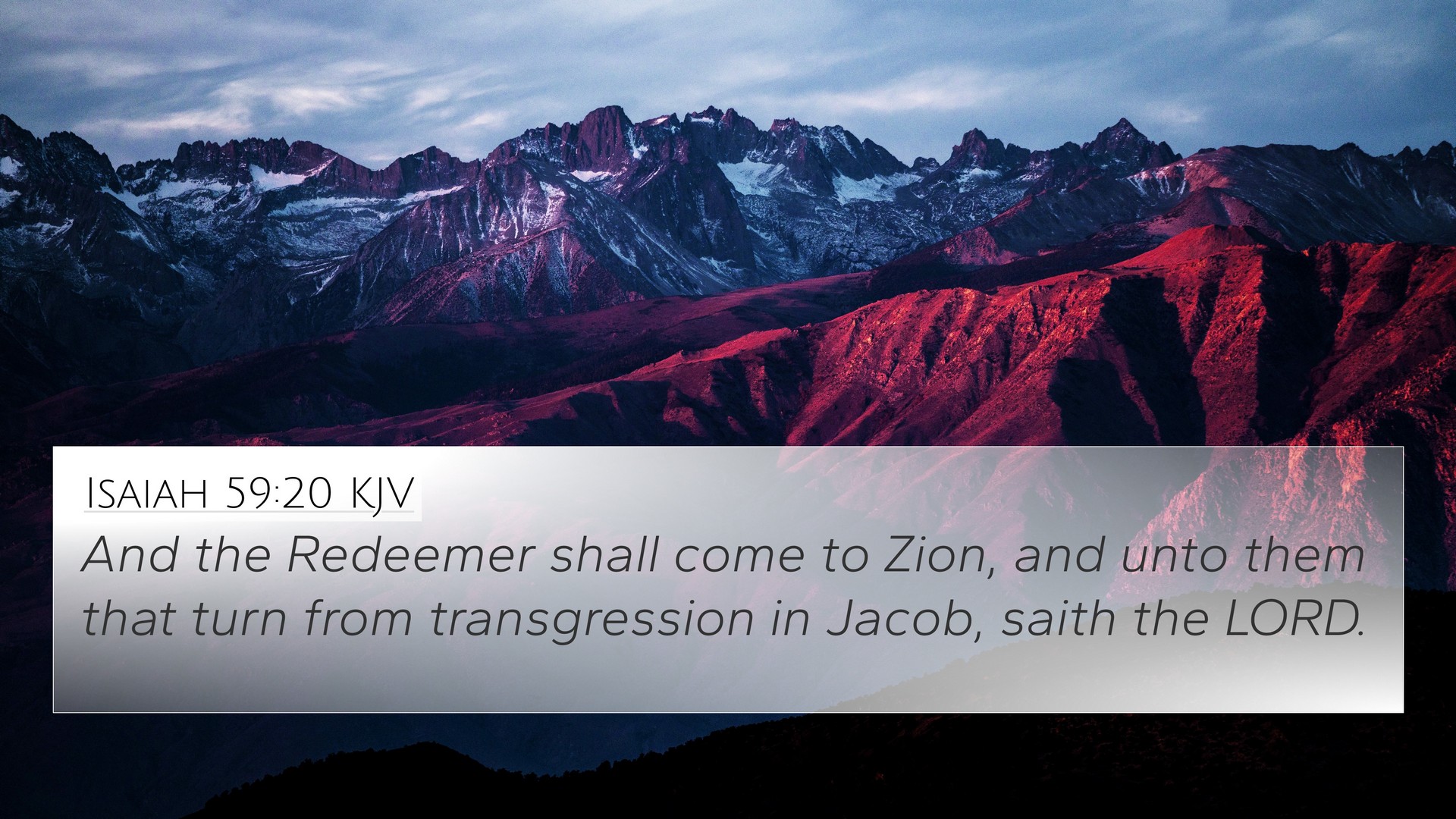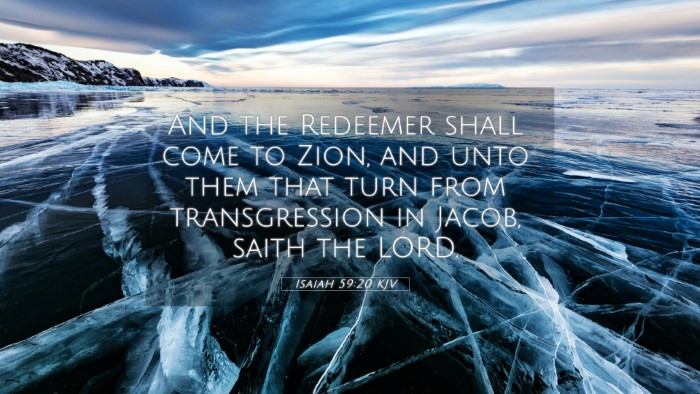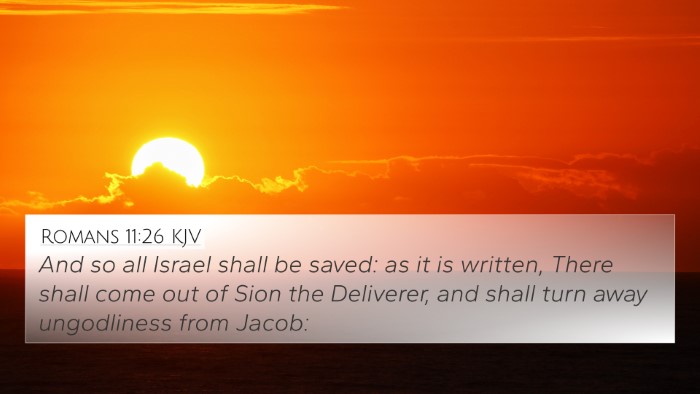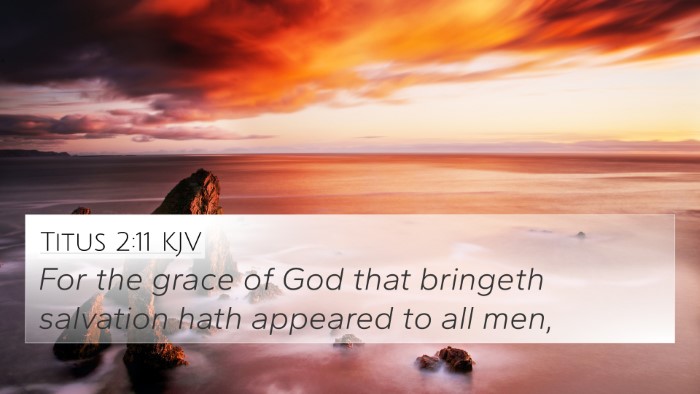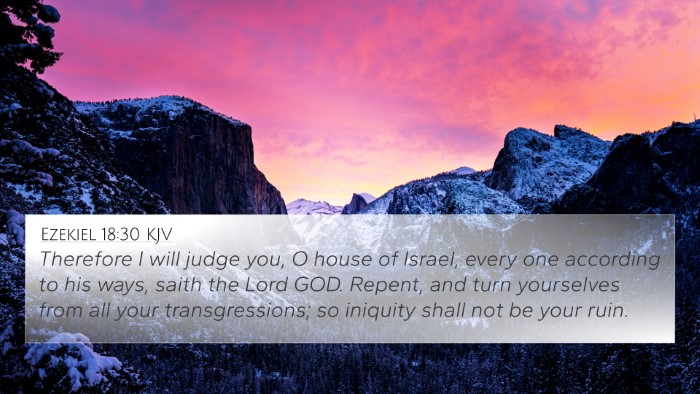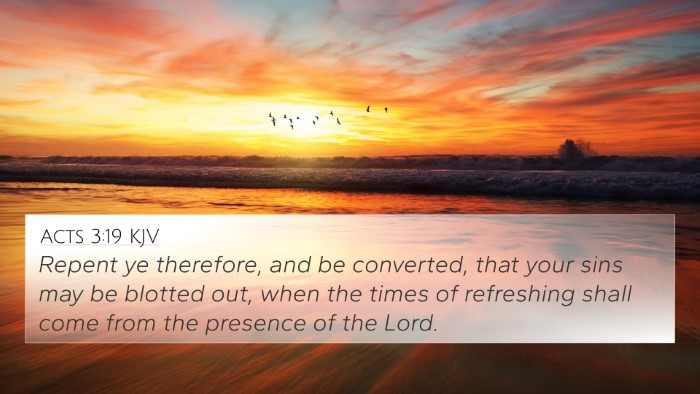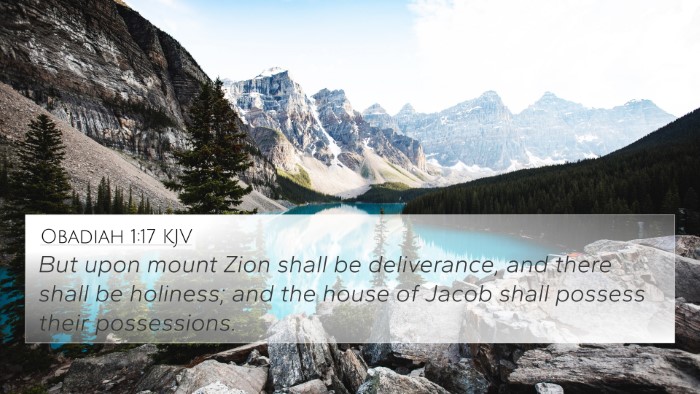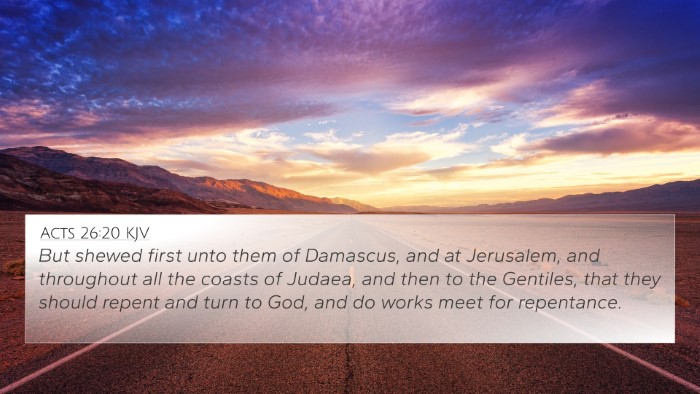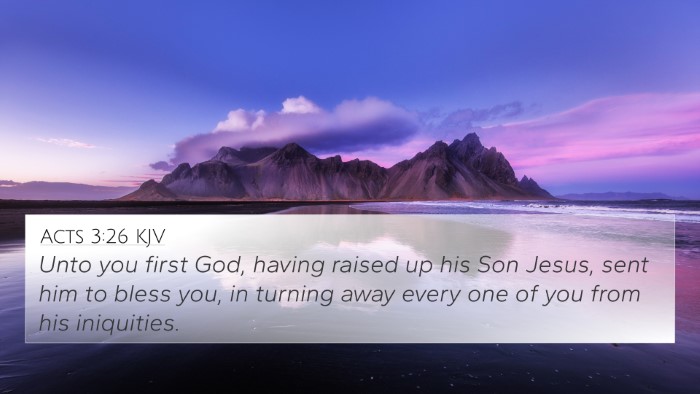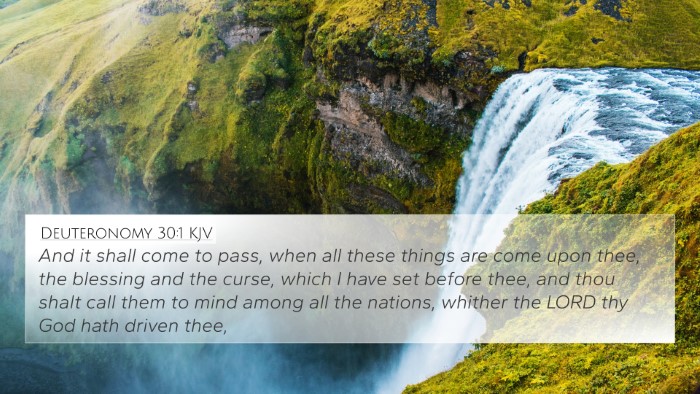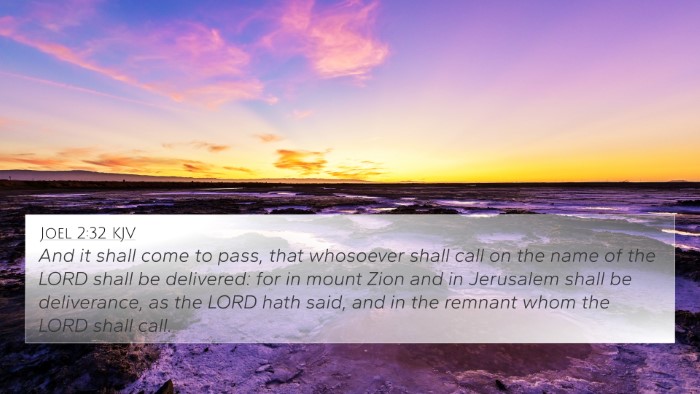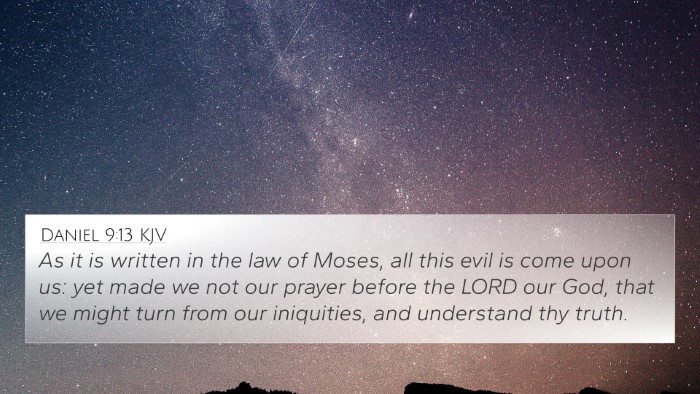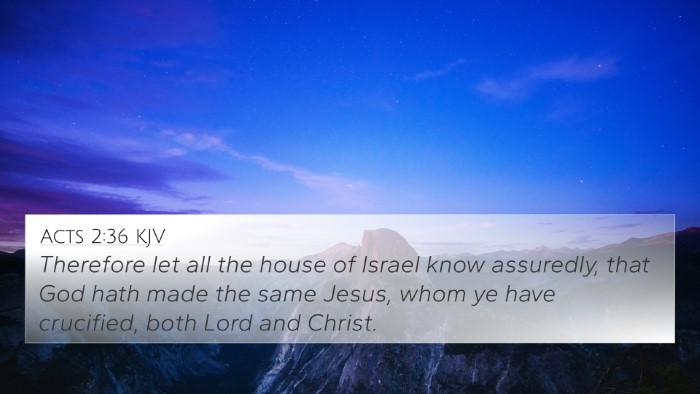Understanding Isaiah 59:20
Verse: "And the Redeemer shall come to Zion, and unto them that turn from transgression in Jacob, saith the LORD." (Isaiah 59:20)
Summary of Insights
This verse comes from a prophetic context where God is revealing His plan for redemption and the coming of the Redeemer. Several public domain commentaries offer insights into the depths of this passage. Below is a synthesis of viewpoints from Matthew Henry, Albert Barnes, and Adam Clarke.
Matthew Henry's Commentary
Matthew Henry highlights that the term "Redeemer" refers to the Messiah, emphasizing His role in delivering His people from sin. He argues that this redemption is offered to those who repent—"them that turn from transgression." This reflects the gracious character of God, who is eager to forgive and restore relationship with those who repent.
Albert Barnes' Notes
Albert Barnes elaborates on the significance of "Zion" as a symbol of God's dwelling place, representing all true believers. The coming of the Redeemer to Zion indicates a future fulfillment where God’s grace will be manifested fully, connecting to the hope that offers liberation not just from physical captivity but spiritual bondage as well.
Adam Clarke’s Commentary
Adam Clarke emphasizes the eschatological aspect of this verse, pointing to a time when God will actively redeem His people. He underscores the condition of repentance as crucial, suggesting that turning from sin positions believers to receive God's saving grace. Clarke also notes that Zion represents the faithful community to which the Redeemer comes, signifying restoration and hope.
Cross-References
This verse connects with several other scripture passages that reinforce its themes of redemption and repentance:
- Romans 11:26: "And so all Israel shall be saved: as it is written, There shall come out of Sion the Deliverer..." - This shows the fulfillment of Isaiah’s prophecy through Christ.
- Matthew 1:21: "And she shall bring forth a son, and thou shalt call his name JESUS: for he shall save his people from their sins." - Confirming the purpose of the Redeemer.
- Titus 2:14: "Who gave himself for us, that he might redeem us from all iniquity..." - Illustrating the redemptive work of Christ.
- Luke 24:47: "And that repentance and remission of sins should be preached in his name among all nations, beginning at Jerusalem." - Reflecting the call to repentance.
- Isaiah 53:5: "But he was wounded for our transgressions, he was bruised for our iniquities: the chastisement of our peace was upon him; and with his stripes we are healed." - Related to the suffering servant theme.
- James 4:8: "Draw nigh to God, and he will draw nigh to you. Cleanse your hands, ye sinners; and purify your hearts, ye double minded." - Reinforcing the theme of repentance.
- John 14:6: "Jesus saith unto him, I am the way, the truth, and the life: no man cometh unto the Father, but by me." - Jesus as the ultimate path to redemption.
Thematic Connections
Isaiah 59:20 underscores vital Biblical themes such as:
- Redemption: The promise of the Redeemer is central to both Old and New Testament messages.
- Repentance: The necessity of turning from sin is a consistent Biblical principle for receiving salvation.
- Restoration: The divine intention to restore relationship with humanity through the coming Messiah.
Practical Applications
Understanding Isaiah 59:20 provides rich ground for personal reflection and study. Here are some practical applications for today’s believers:
- Recognize the Redeemer: Acknowledge Jesus Christ as the fulfillment of the prophecy and our personal Savior.
- Embrace Repentance: Understand that turning away from sin is not just an act of confession but a commitment to change.
- Seek Restoration: Maintain hope in God's promise to restore us to Him when we repent and believe.
Tools for Further Study
For those interested in exploring more about cross-references and thematic connections in the Bible, here are some tools and methods to consider:
- Bible Concordance: A reference tool that indexes words and phrases found in the Bible, helping you find related verses.
- Bible Cross-Reference Guide: Helps in identifying verses that support or complement the themes you are studying.
- Cross-Reference Bible Study: Engaging in cross-referencing can deepen your understanding of scripture.
- Bible Chain References: Following linked verses can reveal broader insights into God’s Word.
Conclusion
In summary, Isaiah 59:20 powerfully encapsulates the themes of redemption, the importance of repentance, and the promise of restoration through the Messiah. By studying cross-references and understanding the interconnectedness of scripture, believers can gain a deeper appreciation for God’s salvific plan throughout the Bible.
May this exploration enrich your study of the Word and draw you closer to the Redeemer, who promises restoration and hope!
